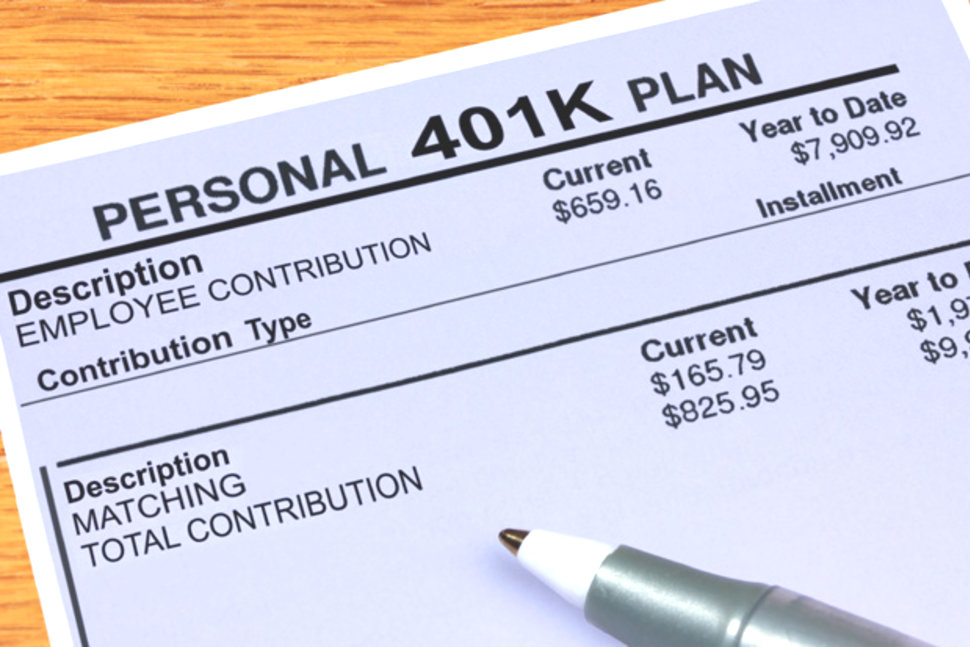
Many people are getting their 2018 year-end 401(k) statements about now, and they’re probably seeing significant declines in their account value for the first time in recent memory. If this happens to you, should you be concerned? The answer: It depends.
For one thing, it depends on your age, and for another, it hinges on whether you have a strategy to address the inevitable stock market fluctuations that will occur during your lifetime. Let’s look at the steps two different age groups should be taking.
Workers under age 50
If you’re less than 50 years old, “do nothing” is most likely the best course of action when market tumbles lead to a drop in your 401(k). One of the worst things you could do during a stock market decline is to sell out, locking in your losses and potentially foregoing the chance for future gains.
Instead, take some comfort in the fact that the stock market experienced nine straight years of positive returns in the S&P 500 index, including dividends, from 2009 to 2017 before it experienced a loss in 2018. If you were invested in stocks during this winning streak, you’re still way ahead by doing so compared to having invested in bonds, money market funds or stable value funds, even with the recent drop.
At your current age, you most likely won’t need to tap into your 401(k) account for at least 10 years, so you have time for the stock market “double-double” to work for you. This term refers to two historical stock market trends:
- Since 1926, the S&P 500 has been positive in more than twice as many years than years with negative returns. To be exact, 68 years had positive returns vs. only 25 with negative returns.
- When the S&P 500 experiences a positive annual return, the magnitude of the average gain is almost twice as large as the magnitude of the average annual loss.
Since your investing horizon is 10 years or more, you have time to ride out stock market declines.
If you’re still concerned, you might want to revisit your investing strategy with the goal of helping you ride out stock market declines. One good strategy is to commit to only “buying low” and “selling high” rather than ever “buying high” and “selling low.” You can do that by investing in a fund that has a specified asset allocation between stock and bonds and that periodically rebalances its portfolio.
If stocks decline relative to bonds due to a market dip, the fund buys more stocks to bring it up to the target asset allocation and vice versa in the opposite scenario. Examples of such funds that are typically found in 401(k) plans include balanced funds or target-date funds.
Older workers and retirees
Older workers are in a different spot — they don’t have as much time available to ride out a market drop and rebuild on the rebound. But if you’re an older worker or retiree with a thoughtful strategy to convert your hard-earned savings into a portfolio of retirement income, this should allow you to sleep at night even during stock market volatility, such as the wild swings that have become common recently.
If you don’t have such a strategy in place and are approaching your retirement years or are already retired, you should shift your thinking from accumulating assets to generating retirement income. Here’s one strategy that can work for many people:
- Cover your basic living expenses with “retirement paychecks” that don’t drop if the stock market crashes. Sources include Social Security, pensions, low-cost payout annuities, bond ladders and tenure payments from reverse mortgages.
- Cover your discretionary living expenses with “retirement bonuses” that have the potential for growth though stock market investment. However, be prepared to reduce your discretionary spending if stocks tank.
This strategy can help you ride out any market declines because you know you have money to pay for housing, food, utilities and health insurance premiums.
For most retirees, Social Security accounts for 50 percent to 80 percent or more of their total retirement income. As a result, a large part of their total retirement income is already protected from falling stock markets. Giving careful thought to the portion of your retirement income portfolio that will be devoted to retirement paychecks should allow you to sleep at night.
As life expectancy gains, it’s inevitable that we’ll experience a few more stock market crashes during our lifetimes. But nobody can accurately predict when one will happen and when a recovery will take place. The best you can do is develop strategies to ride out the downturns, without needing to know exactly when they’ll happen.
By planning ahead, you’ll give yourself the best chance at experiencing the retirement you’ve always dreamed of.





























